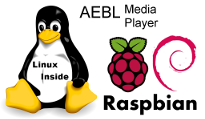Well, isn't that a curious mix of subjects. What do these things have to do with AEBL?
As many may already know, AEBL is a technology toolkit or framework which allows people to access and share information.
The act of sharing information is, simply stated, a form of communication. That communication can serve any number of functions, whether it be for commerce, education, or collaborative innovation. It is the latter, that this post is ultimately referring to.
Most tools that we get and use, are built with a specific, obvious function. A hammer, a word processor, or a car. What they don't easily represent, is an idea. Or more specifically, innovation. AEBL is more of an idea or innovation tool, and so is difficult to express, as it relies on the imagination of the potential user, rather than the developers telling the user how to use it or what it does.
So in this post, I will provide another idea of what AEBL was built for, and how it can empower a user, as well as how AEBL represents and supports community building.
There is a fundamental relationship between an individual and a tribe. A tribe is often referred to as a community, yet the two are most certainly distinct, even while they are not mutually exclusive.
A tribe is essentially a precursor to a community. Some would describe a tribe as homogeneous, where a community is heterogeneous. Yet, the two can and do co-exist, and perhaps in certain ways, one cannot exist without the other. Certainly, community is based on a need, or perhaps even a desire. A tribe though, may be ascribed to passion, which is an individualistic property, even though it can be shared by many.
And passion, in many ways, is a strong emotion based on an idea, and ideals. It has the capacity to bring people together and the equal capacity to divide people. And in that frame, it breaks down the idea of meritocracy.
Perhaps the person who should be the poster child for a failure of meritocracy, might be Galileo Galilei. He is attributed to the revelation that the Sun is the centre of our solar system, although he was defending an already developed theory. He was actually tried and jailed (life under house arrest) for his promotion of the idea. While many may condemn the church for this outcome, the reality is, he was found without merit by those whom believed otherwise. Let me emphasize that. He was downvoted for such a silly idea. Even 200 years later, scientists were still trying to prove this idea, until it was generally adopted as fact.
The point is, many great ideas never get adopted because the promoter does not have merit. Especially in the current norm of upvoting or downvoting an idea or person, ideas are extremely fragile. Whether a person has extensive experience in a field of study, or none at all, their personal merit may have no bearing on the value or merit of an idea. And so it is with startups.
Startups can thrive or die on merit. Unless enough people can be convinced of the merit of the value provided by a startup, a startup will fail. Except those which are driven by passion. Some startups exist only as startups, for the life of the founder. Sometimes a founder's passion gets in the way of the success of their startup. Sometimes their merit, or lack of, gets in the way. And even in some cases, perhaps it could be argued that an idea will only be a viable business when its time comes.
Yet, if one takes a look at successful startups, it is a combination of passion and tribal development, that takes it beyond an idea and into the realm of viability. It is the tribe, not the individual, that gives a startup its merit. More than merit, it is the tribe that, upon reaching a critical mass, sets in motion further adoption of which merit is only a minor consequence, if at all. People trend towards that which others are using, as that is the measuring stick of merit, for many.
So here at AEBL, we encourage all the tribe to be open to support others in their ideas and startup ventures. As an idea or startup grows, adjustments are necessarily made to solve for any short comings. If we fail each other, then we may end up living for another 200 years on a flat earth. Rather, we want to encourage and support others in their own ideas and startups.
To participate in this goal, visit the AEBL discussions.
More on Tribe vs Community.
Wired article Moneyball for Startups.

No comments:
Post a Comment